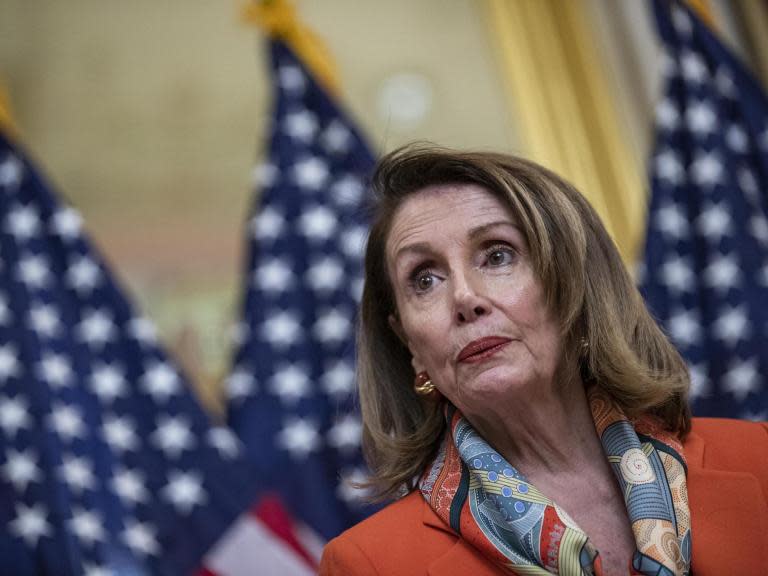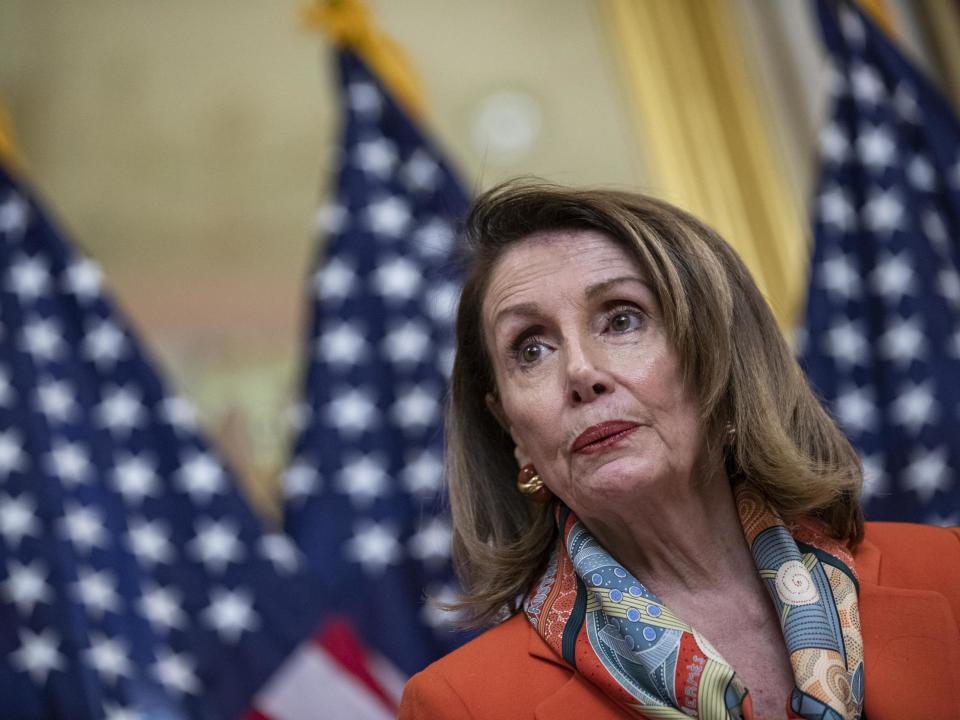Pelosi warns US will not strike Brexit trade deal with UK if Good Friday Agreement is undermined
Nancy Pelosi has said there will be no chance of a US trade deal with the UK if the Good Friday Agreement is undermined by Brexit.
Speaking at the London School of Economics, the speaker of the US House of Representatives warned a future trading arrangement between the two countries is not guaranteed, and said it would not happen if the UK’s exit from the European Union violates the terms of the 1998 peace accord.
Ms Pelosi said: “First of all it is very hard to pass a trade bill in the Congress of the United States, so there’s no given anyway. But if there were any weakening of the Good Friday accords there would be no chance whatsoever, a non-starter for a US-UK trade agreement.
“The Good Friday accords ended 700 years of conflict. This is not a treaty only, it’s an ideal, it’s a value, it’s something that’s a model to the world, something that we all take pride in.
“It was a model and other people have used it as a model and we don’t want that model to be something that can be bargained away in another agreement.”
The US played an influential role in the Northern Ireland peace process, and former senator George Mitchell served as a peace envoy to the region for then-president Bill Clinton, eventually overseeing the signing of the agreement between the UK and Irish governments and all political parties in Northern Ireland.
Yesterday, the former prime ministers of the UK and Ireland, Tony Blair and Bertie Ahern, called for a second referendum on Brexit to protect the integrity of the Good Friday Agreement.
One of the most influential democrats in Washington, Ms Pelosi is currently on a visit to the UK and Ireland, and met with Labour leader Jeremy Corbyn on Sunday, when the pair discussed the need to protect the Good Friday Agreement.
Ms Pelosi is due to address the Irish parliament on Wednesday, and will meet with leaders from across the island during her visit.
A post-Brexit trade deal with the US has long been an aspiration of Brexiteers, and has been advocated by President Trump himself.
The proposed deal has also proved controversial in the UK because of perceived lower standards of food and other goods from the US.
Speaking in Davos in January, Irish taoiseach Leo Varadkar also pointed out that the UK could struggle to negotiate free trade deals elsewhere around the world if the Irish border question remained unresolved.


